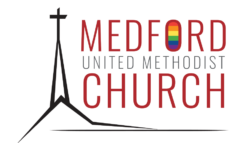
1 Paul and Silas journeyed through Amphipolis and Apollonia, then came to Thessalonica, where there was a Jewish synagogue. 2 As was Paul’s custom, he entered the synagogue and for three Sabbaths interacted with them on the basis of the scriptures. 3 Through his interpretation of the scriptures, he demonstrated that the Christ had to suffer and rise from the dead. He declared, “This Jesus whom I proclaim to you is the Christ.” 4 Some were convinced and joined Paul and Silas, including a larger number of Greek God-worshippers and quite a few prominent women.
5 But the Jews became jealous and brought along some thugs who were hanging out in the marketplace. They formed a mob and started a riot in the city. They attacked Jason’s house, intending to bring Paul and Silas before the people. 6 When they didn’t find them, they dragged Jason and some believers before the city officials. They were shouting, “These people who have been disturbing the peace throughout the empire have also come here. 7 What is more, Jason has welcomed them into his home. Every one of them does what is contrary to Caesar’s decrees by naming someone else as king: Jesus.” 8 This provoked the crowd and the city officials even more. 9 After Jason and the others posted bail, they released them.
Reflection
Acts 17:1-9 paints a troubling picture. You might assume in reading that the people at war with one another in this story are believers verses atheists, or at least sworn enemies. But that’s not the case. These are brothers in the faith who just happen to disagree with one another about what they believe God is doing in the world.
Paul and Silas arrive in Thessalonica and head straight to the synagogue. They preach Christ crucified and risen, showing from the Scriptures that Jesus is the promised Messiah. Some in the synagogue believe. Others, however, react not with curiosity or open debate—but with jealousy, hostility, and division.
These were spiritual siblings who shared Paul’s faith heritage, history, and hope. Yet, instead of unity – we see fracture. They could not stomach the idea of disagreement because they saw these differences as a threat — a loss of influence, certainty, and identity. They couldn’t live in the ambiguity that comes when some people are so convinced of one set of beliefs, while others were equally convicted of a completely different set. And the result was, it drove them to attack one another.
This is one of the deepest wounds within relationships, and in the body of Christ: when division isn’t between enemies but siblings.
Division among those who believe in the same God is not new. Often our churches are rife with conflict, or at least conflicting opinions about how things should be. Denominations fracture over theological differences and social influence. The Church can often become like the rest of the world – internally divided over politics, socio-economic inequalities, and cultural divides. In this text, brothers allowed fear of the other and jealousy to overrule wise discernment and acts of love. They couldn’t accept that the Messiah might come in a way they didn’t expect – or use people they vehemently disagreed with.
One thing this passage reminds us of is that theological disagreement is often just the surface issue. Underneath lies deeper problems: pride, jealousy, fear of change, or even the need to maintain control. These are heart issues, not just head issues.
Paul and Silas didn’t endlessly argue with those who rejected and plotted against them. They spoke gentle truth, moved on, and entrusted their work to God. But the backlash they endured is a reminder that when we allow divisions between us to turn into actions that actively seek to undermine and harm, the body of Christ in the world is cut deep.
The tragedy in Acts 17 wasn’t that unbelievers rejected the Gospel—it’s that the people of God, the ones supposed to be a witness of God’s love in the world, turned on one another.
It is a nice and comfortable thing when we can find a group of people who believe what we believe. But shared belief is not the only hallmark of Christian community. We must also share a commitment to humility, loving action, and an openness to God’s Spirit at work in all people.
When we allow division to enter the family of faith, it grieves the heart of God – and even worse, it wounds our witness.
by Kate Monahan
For Pondering and Prayer
Am I harboring pride, jealousy, or fear of another that God put me in relationship to? When I am challenged in my own beliefs by someone else, how do I react? Is there a relationship that is fractured in your life that God is calling me to take the first step in repairing – and what would that look like?
Prayer:
God of all grace and healing,
forgive me for the ways I’ve contributed to division among Your people.
Help me to see others not as threats first,
but as fellow siblings, created for Your Kingdom.
Soften my heart where pride or jealousy have taken root.
Teach me to pursue peace without compromising truth.
Make me a peacemaker among brothers,
as You have made peace with me through Christ.
Amen.



